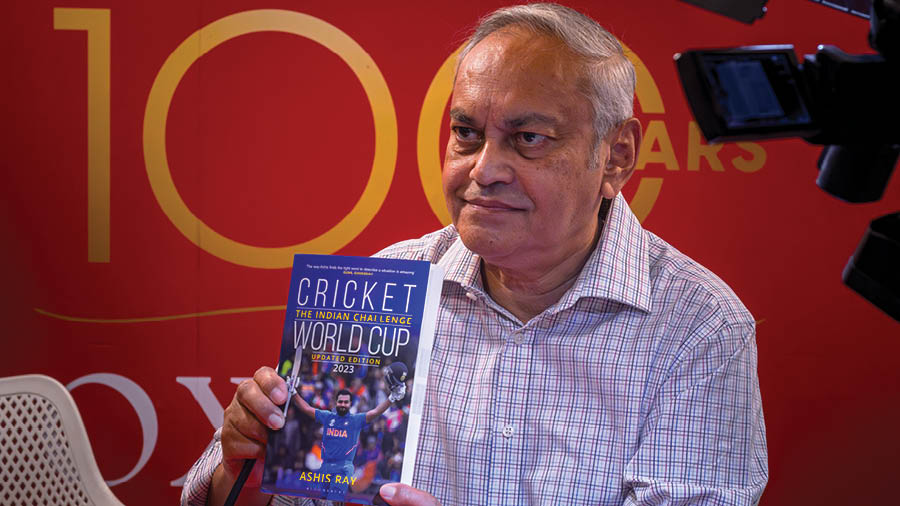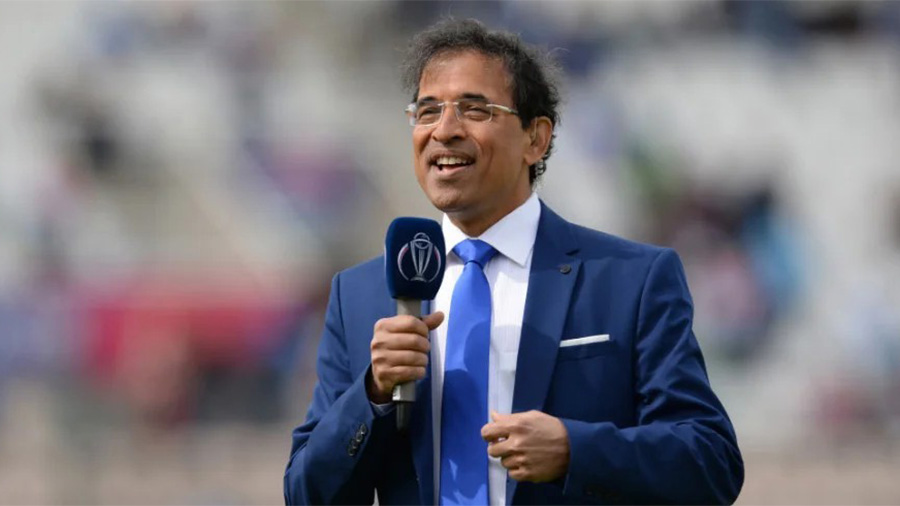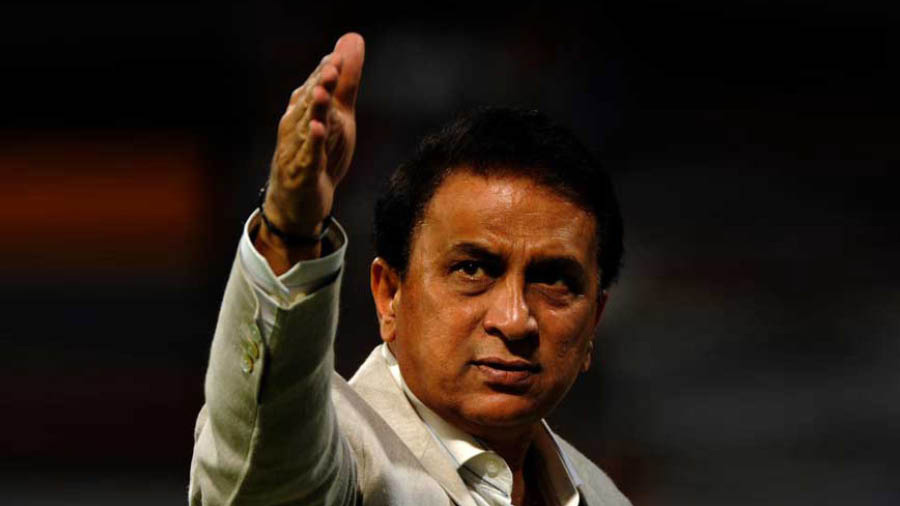Few individuals across the world, let alone Indians, can claim to be associated with the ICC Men’s Cricket World Cup since its second edition in 1979. Ashis Ray, cricket broadcaster and commentator, is one of them. On November 3, Ray launched the third edition of his book Cricket World Cup: The Indian Challenge (published by Bloomsbury India) at Oxford Bookstore on Park Street. My Kolkata caught up with Ray on the sidelines of the launch to discuss his World Cup experiences, Team India’s chances this time around, a special documentary about 1983 and more. Edited excerpts from the conversation follow.
My Kolkata: You have covered every World Cup since 1979, working with media platforms like the BBC, Sky Sports and Sony India, among others. How different have these experiences been?
Ashish Ray: In the early days of the World Cup, there was only the BBC that had exclusive rights for both TV and radio. One of the differences is that the BBC is an organisation with a lot of history and they stick to a certain standard. There was a time when the authorities in England felt that the BBC shouldn’t be dedicating so much time to a single sport like cricket day after day, which partly allowed Sky Sports to come in. Sky’s approach is different because they come from the private sector. When the BBC decided to take cricket off as a listed event, it was opened to Sky, who are satellite broadcasters, and Channel 4, a terrestrial broadcaster, who took it up for an interim period. There was a stylistic difference. For the BBC, someone like me would do ball-by-ball commentary along with experts and former Test cricketers, who would provide their summary and expertise. Sky was different in that they used former cricketers only, which has more or less become the norm with others like Sony and Star in India, too. People like me are brought in from time to time. On Sky, I was the only non-international [cricketer] to do commentary. That’s not something that happens too often these days with any broadcaster.
Since you were doing commentary for the BBC in 1983, were you present in Tunbridge Wells on that famous day when the BBC went on strike?
Let me correct you. There was no strike, it’s only a story that goes around India. There was a different match that day that was being broadcast. In those days, you didn’t have the broadcast of every single game. The match between India and Zimbabwe was thought to be a one-sided game, so they chose not to have it on TV. And yes, I was present in Tunbridge Wells on that day, as I was doing the ball-by-ball commentary for BBC Radio.
‘For those interested in more information about 1983, the documentary is going to be a must-watch’
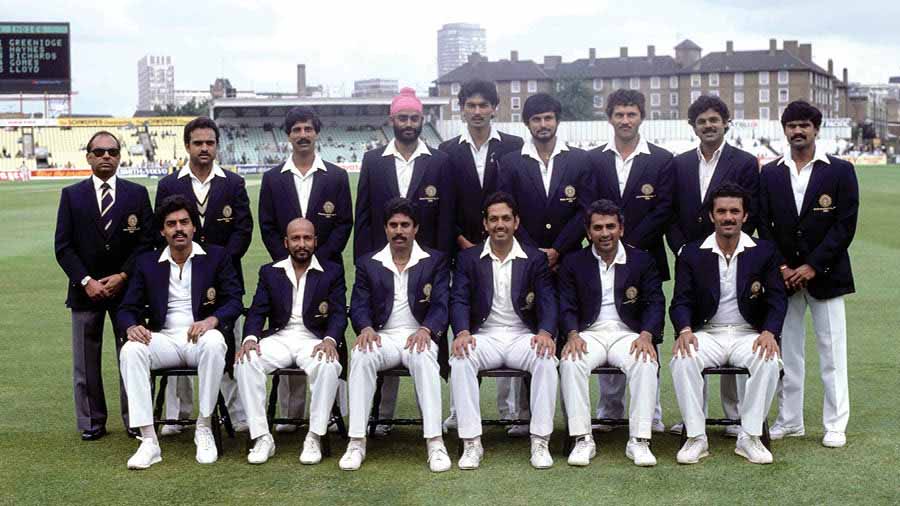
Ray has been involved in a documentary on the Indian triumph in 1983 and is working on releasing it in India soon Getty Images
You are one of the few Indians to have witnessed that famous Kapil Dev knock. Do you think it was done justice to in 83, the Bollywood biopic?
I haven’t watched 83, but I have [been involved in] a documentary about 1983, which would be far better than anything available. It should be out soon, and for those interested in more information about 1983, the documentary is going to be a must-watch. It has already been shown on Sky in the UK, but the international release dates aren’t confirmed yet. We’re working to make it available in India (those present in Oxford got to see a teaser of the documentary).
‘I was the only Indian, the only Asian and possibly the only non-white calling the action’
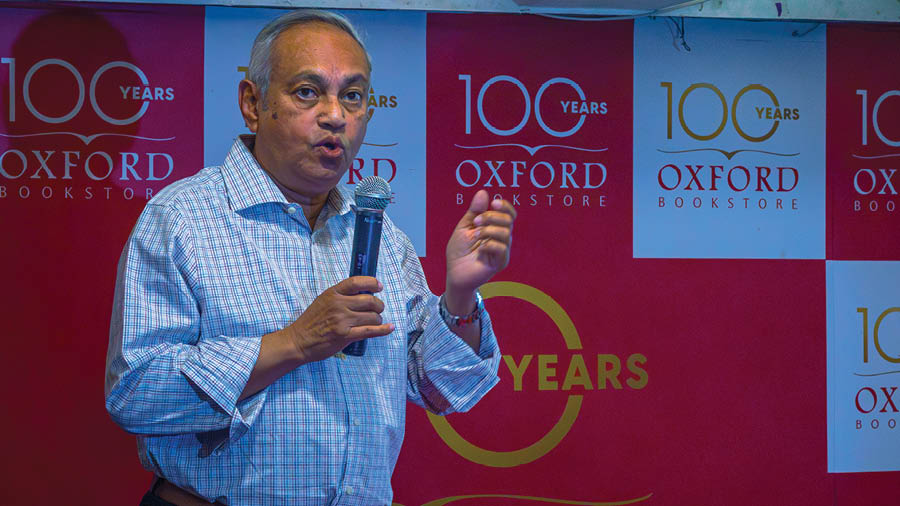
Ray believes that his commentary stint in ’83 had a lot to do with India’s success at the tournament Krishnungshu Gangopadhyay
What was it like being among foreign broadcasters at a time when Indian cricket was not given much importance? And how difficult was it to keep your bias aside while doing commentary as India reached the pinnacle in 1983?
I had received pretty good training because the All India Radio (AIR) was a very professional organisation before the Emergency. I started broadcasting in India in the early ’70s on AIR and that stood me in good stead. As far as broadcasting for the BBC, the first World Cup I covered was 1979, and then I did 1983. So, it was a case of good fortune, where I was in the right place at the right time. I was the only Indian, the only Asian and possibly the only non-white calling the action. There was Tony Cozier from the West Indies on the commentary panel, but other than that, it was only Englishmen or Australians. There also may have been one South African. But yes, it was one of those situations where the more India progressed, the more they needed my services and, therefore, I was a trifle lucky.
Now that you have launched the third edition of your book, what are the latest inclusions that were not a part of the previous editions (in 2015 and 2019)?
In the course of making my documentary, I interviewed a whole host of people on the 1983 World Cup. Some of the stories have been incorporated into the book. There are certain stories that Sachin Tendulkar has shared about the 2011 World Cup, which are fresh. And, of course, we have the complete coverage of the 2019 World Cup.
Over the past 20 years, there has been a lot of analysis of why India lost the 2003 final against Australia in Johannesburg. What is your assessment?
It’s a mixture of a lot of things. There’s a mental aspect to it because that Australian team was something else! At the same time, certain decisions like the toss weren’t right and there was a lack of spirit while bowling. All those things together handed the trophy to Australia.
‘I’ve never seen a bowler who can land ball after ball on the seam like Shami does’
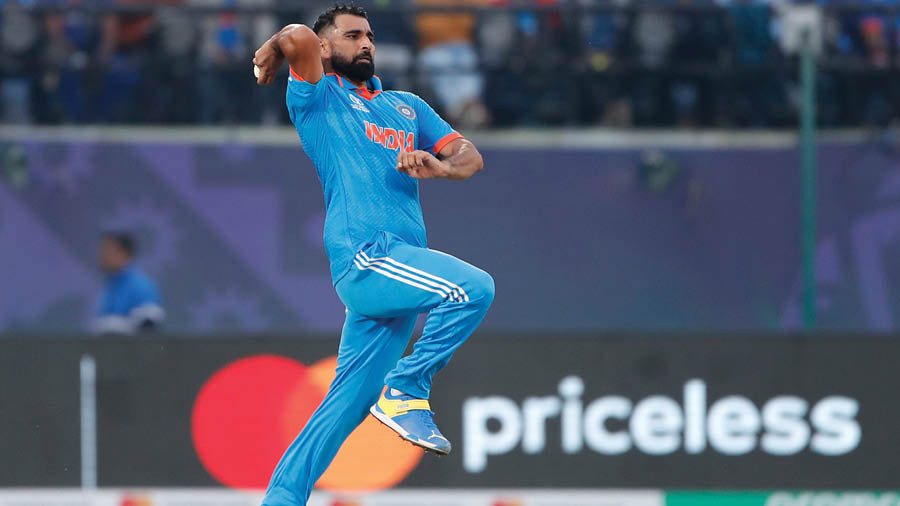
Ray backs India to win the World Cup, especially with Mohammed Shami at ‘the peak of his powers’ Getty Images
Lastly, since the 2013 Champions Trophy, India have gone through a sort of knockout jinx. Losing consistently in semi-finals and finals at various ICC events. Do you think this 2023 team has what it takes to rise to the occasion when it matters most?
Well, the proof of the pudding will come in the knockouts. You may be a very good side but when it comes to the tension of the semis or the final, it’s not just a cricket game. It’s something that also plays with your mind. On this occasion, India have the home advantage, but over and above that, India are a very good side. I haven’t seen such a well-balanced Indian side in a long time. They can go the full distance. Having said that, it only takes one match for things to go awry. But this group of players looks very calm and collected. If an opener fails, someone else takes over in the middle order. They’ve also managed the injury to Hardik Pandya quite well. Moreover, as I’ve said before, you can’t leave your best bowler out, and, for me, that’s Mohammed Shami. He’s at the peak of his powers and he’s proven that whenever he’s got the opportunity. In my 50 years of seeing professional cricket, I’ve never seen a bowler who can land ball after ball on the seam like Shami does. He’s a really special talent.
